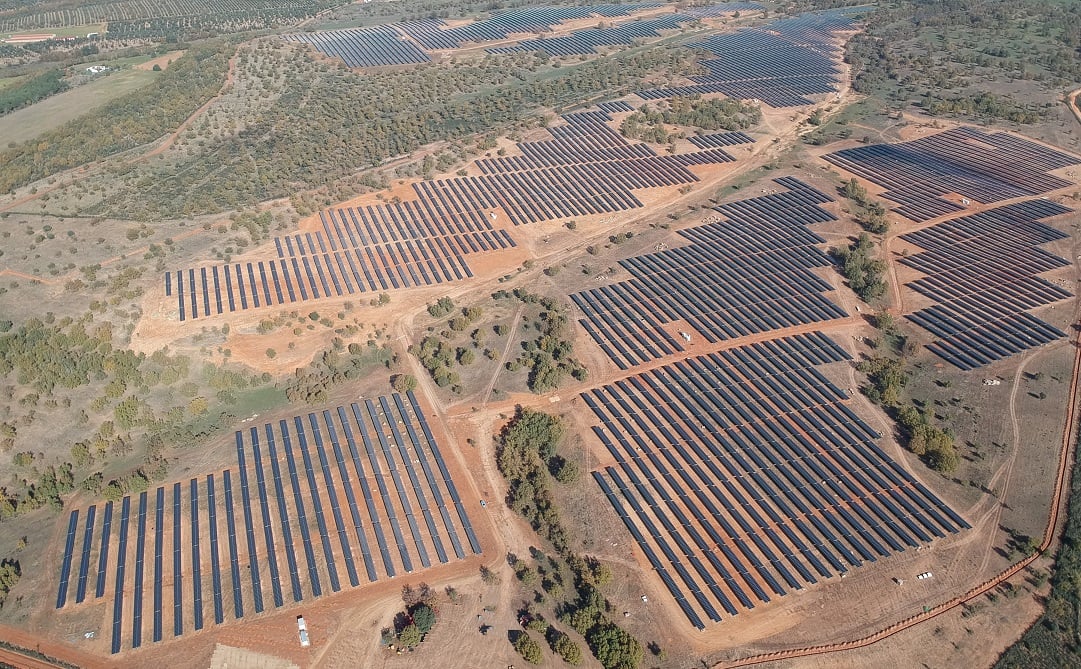
Shorter power purchase agreements (PPA) could become more commonplace in Europe’s solar sector as developers strive to bring on more corporations and utilities as offtakers, according to a panel of industry leaders.
Lee Moscovitch, partner at UK-based asset manager Greencoat Capital, told panelists at the Solar Finance and Investment Europe online event today (4 February) that the UK market is starting to see prospective offtakers asking for shorter PPA lengths with more sophisticated price structures to mitigate the risk associated with price volatility in the energy market.
Try Premium for just $1
- Full premium access for the first month at only $1
- Converts to an annual rate after 30 days unless cancelled
- Cancel anytime during the trial period
Premium Benefits
- Expert industry analysis and interviews
- Digital access to PV Tech Power journal
- Exclusive event discounts
Or get the full Premium subscription right away
Or continue reading this article for free
“What we’re starting to see more creeping in is either shorter term PPAs with fixed price, people asking you to price [a] month ahead, or baseload pricing, looking at shaping cost ahead and who takes that risk,” he said, adding there has also been work in “pricing in floors and discounts to market.”
While a a PPA may have typically run for between 15 and 20 years, a steady flow of shorter contracts has emerged in recent years. PV developer Solaria signed a 10-year deal with Shell Energy Europe last month for six solar plants in Spain with combined capacity of 300MW shortly after Danish renewables group Better Energy secured a seven-year PPA with pharmaceutical company Lundbeck.
As deployment rapidly scales up across Europe, PPAs are set to become a dominating force in the continent’s project financing. Software company Pexapark estimates that as much as 10GW of capacity could be contracted under long-term agreements by the end of this year. Although the majority of contracts are held by developers in Spain, where the solar sector is more mature, Luca Pedretti, Pexapark’s COO and co-founder, believes Germany could become a strong competitor due to country’s proliferation of industrial and corporate firms with stronger liquidity.
However Fernando de Juan Astray, head of origination, structured and long term products for Axpo Iberia, echoed the sentiments around PPA length and sophistication, believing contacts are becoming more standardised as offtakers and developers seek to mitigate their own price risk.
“There’s an oversupply right now, especially in hot countries,” he said, adding that these supplies are “really setting price levels and if you want to offload risks and hedge, then you have to pay some risk premiums”.
“That’s why in our view the market has tended towards more standardised structures, more baseload-y structures where risks are more manageable from the offtaker’s point of view.”
As solar energy prices gain parity on the grid, he said, “there has to be a proper risk assessment and therefore make decisions on that risk. That’s where we have seen, structures would tend to be shorter term, perhaps five years instead of 10, 12, 15 which they were before, there are fewer pay-as-produce structures, perhaps going to a base-load structure.” Astray added that more financially complex structures such as monthly reviewing and shorter term contracts “would raise your PPA prices”.
Olivier Bardet, head of global pricing and structuring of Enel Green Power, added that European PPAs are “becoming more financial and this development is good while the market is producing hedging solutions to everyone.”
However, Bardet later noted that new deployments and projects are still the driving force behind long-term power agreements. Although new deployment is needed as the global energy transition progresses, he warned that the solar industry will need to think critically about remarketing existing power plants in the future.
“It’s a market that’s driven a lot by additionality,” he said. “Existing plants have smaller cover than new plants and in some ways this energy, in some ways damages existing plants’ marketing, and in future will have to think about how to change that and make existing plants attractive.”
The Solar Finance and Investment Europe event, organised by PV Tech publisher Solar Media, continues with a number of country-specific virtual workshops to be hosted throughout this month. Meanwhile, content from the opening two days of the conference will remain available on demand throughout the rest of February. For more details on the event and how to participate, click here.






